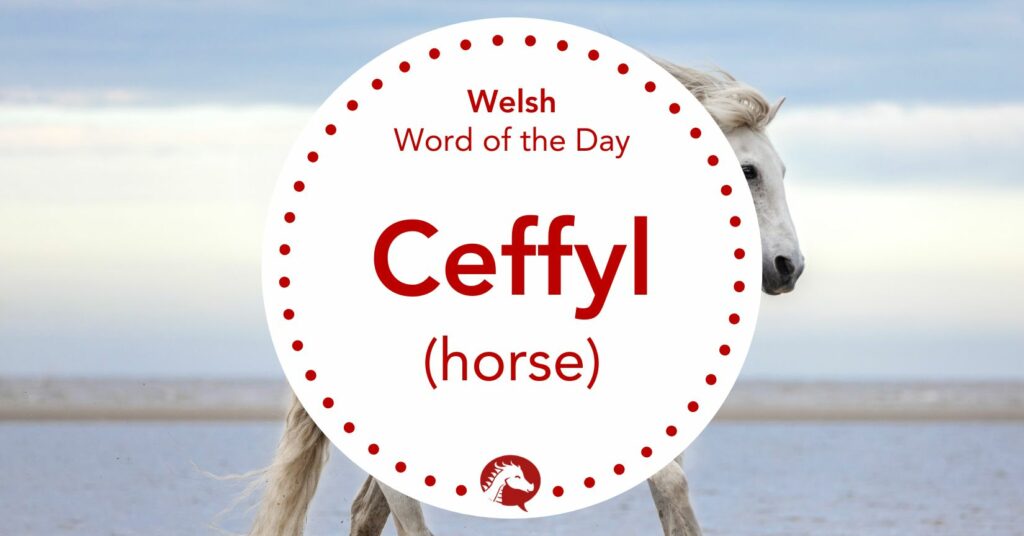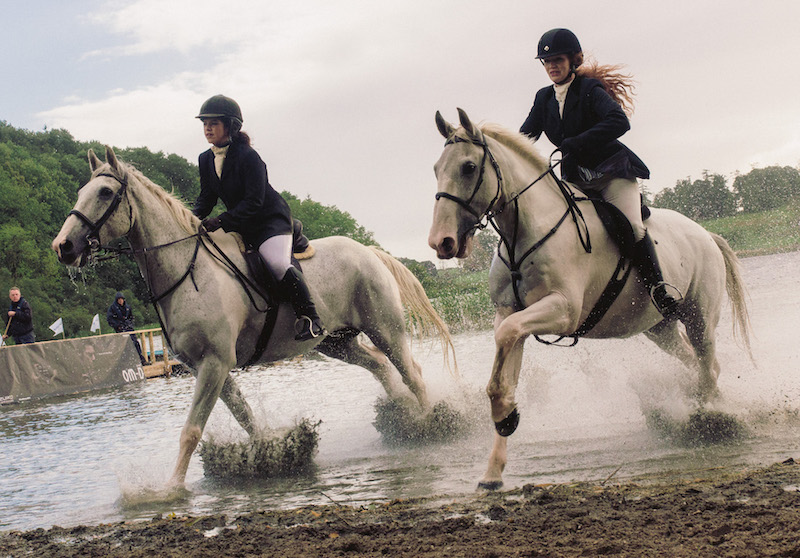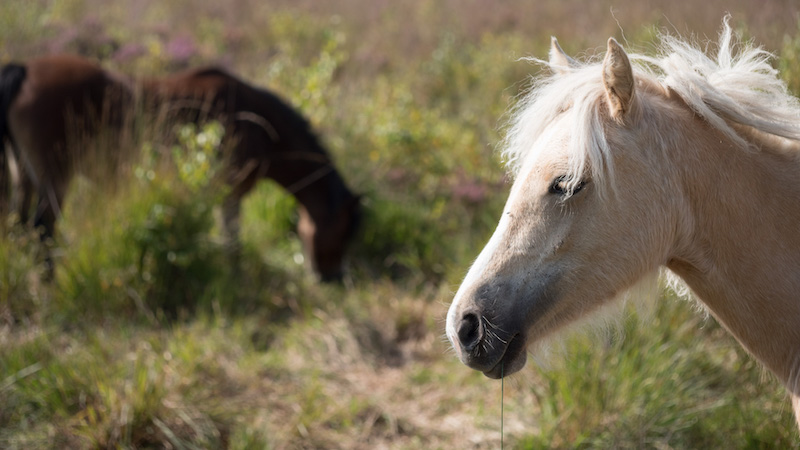Few animals have had such a great impact on British civilisation as the humble horse. The domestication of horses began in Britain by the 25th century BC and over the years, they have been used for warfare, agriculture and transportation. Today horses are kept mostly for recreational purposes but they remain a much-loved animal across the British Isles and the world.

The Welsh word for “horse” is ceffyl and the plural is ceffylau. This word is used across Wales in all dialects. A rare synonym is cel but it is more common to hear it in stories and poems rather than in conversation.
Ceffyl – Ceffylau
Horse – Horses

Another word that was once used to express “horse” in general but is now mostly used to refer to a stallion is march (plural: meirch). Below are a few animals whose names contain the word ‘march’:
- March môr = sea horse
- March asgellog = flying horse (Pegasus)
- March afon = hippopotamus
- March y dŵr = water spider
Note that many Welsh speakers use the word stalwyn instead of march when talking about stallions.
A mare is known as a caseg in Welsh and a foal is generally referred to as an ebol, although some speakers may use swclyn or cyw ceffyl instead. Cre o geffylau is a “band of horses”.

Mae ceffyl gwyn yn y cae.
There is a white horse in the field.
Because horses played such a prominent role in British society, it shouldn’t come as a surprise that many Welsh idioms contain either ceffyl or march. Some of these are very similar to existing English idioms, probably because they’ve been translated directly into Welsh. Below is a list of the ones I’ve come across so far!
- Cyfrif dannedd march/ceffyl rhodd = Look a gift horse in the mouth (Lit: Count a gift horse’s teeth)
- Rhoi’r drol o flaen y ceffyl = Put the cart before the horse
- Ar gefn ei geffyl / Ar gefn ei cheffyl = On his/her high horse
- Fel marchod ar geffyl gwyn = Like a knight in shining armour (Lit: Like a knight on a white horse)
- Ar gefn ei geffyl gwyn / Ar gefn ei cheffyl gwyn = Full of mischief (Lit: On the back of his/her white horse)
- Ar gefn ei geffyl cwta / Ar gefn ei cheffyl cwta = In a temper (Lit: On the back of his/her short horse)
- Chwipio ceffyl marw = Flog a dead horse
- Bwyta fel ceffyl = Eat like a horse
- Ceffyl da yw Ewyllys = If you really want to work hard, you will (Lit: Will is a good horse)
